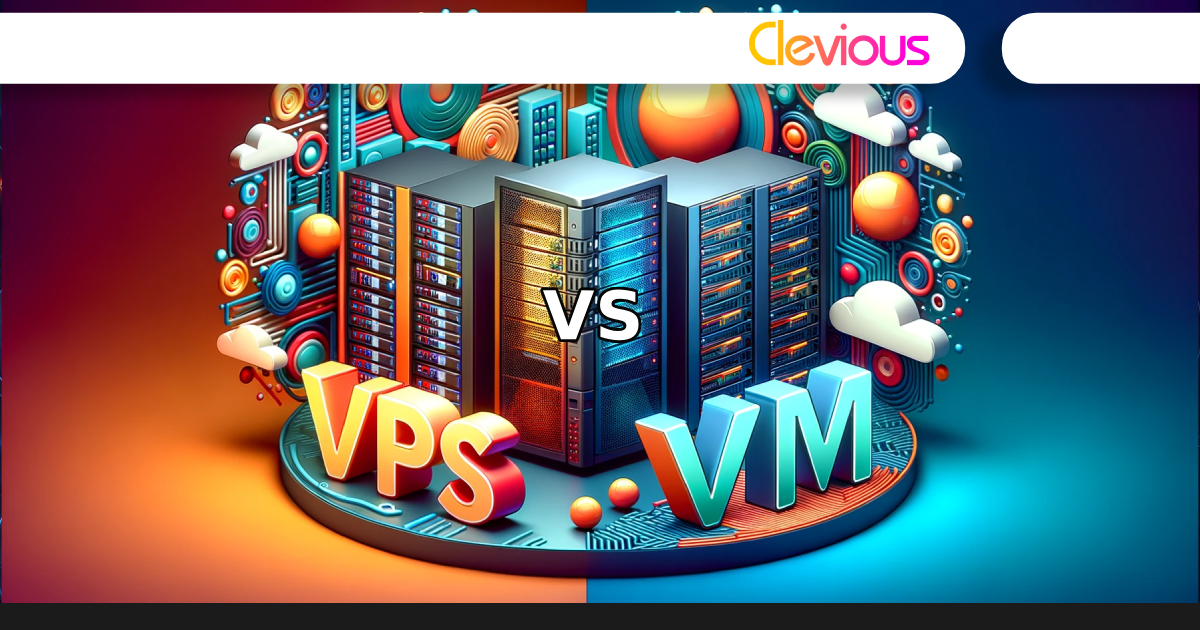In the realm of virtualization, VPS and VM might sound similar. But to grasp their nuances, it’s crucial to look at their interrelation and distinct functionalities. Let’s dive in.
Virtual Private Server (VPS)
A VPS is essentially a partitioned section of a physical server, made possible through virtualization technology.
- Purpose: Beyond hosting, VPSs are also used for development, testing, and running applications.
- Customization: Absolutely, you can choose your OS, software, and configurations. It feels like having your own isolated server.
- Resources: They are dedicated, but bound by the physical server’s limitations.
- Isolation: One VPS’s operations typically won’t interfere with another, but shared underlying hardware can be a limiting factor.
Virtual Machine (VM)
A VM, made possible via virtualization software, simulates a physical computer, allowing multiple OS environments on one machine.
- Purpose: VMs cater to diverse needs – software testing, development, and even personal use like running a different OS.
- Customization: You can set up multiple distinct OS instances.
- Resources: Directly linked to the host computer. Balance is key to avoid straining the host OS.
- Isolation: VMs offer a highly isolated environment, ensuring activities in one don’t affect another.
Understanding Their Connection
The Role of Virtualization:
Virtualization is foundational to both VPS and VM. It’s the tech that enables multiple virtual environments on one physical machine. A hosting company utilizes this to create VPSs.
Is VPS a type of VM?:
In essence, yes. A VPS can be considered a type of VM tailored and optimized for hosting and related services, often managed by a third party.
Distinguishing VPS from VM
Accessibility & Control:
While VPSs are generally managed by hosting companies, providing convenient maintenance and support, they can sometimes offer less direct control over hardware settings compared to a VM set up personally. However, many VPS providers allow users to easily scale resources like RAM and CPUs up or down according to their needs, offering a blend of convenience and customization.
Flexibility & Customization:
VMs, particularly those configured personally, offer a high degree of customization of the computing environment, from operating system choices to hardware configuration. In contrast, VPSs also offer customization options albeit within the scope of the hosting provider’s offerings. This includes adjusting computing resources to match usage requirements and choosing from various operating system environments.
Performance Impact:
The performance of a VPS can be contingent on the cumulative demand placed on the hosting company’s servers. However, modern VPS solutions often provide robust performance by leveraging high-end infrastructure. On the other hand, the performance of a VM is directly tied to the capacity of the personal host machine and can be optimized by allocating resources according to specific needs.
Cost Dynamics:
Opting for a VPS usually involves renting server space and resources, which can be more cost-effective for users not wanting to invest in and maintain their own hardware. VMs, especially when utilizing free virtualization software, might save on software costs, but also require you to manage hardware and electricity costs, potentially making them more suitable for those needing full control over their computing environment.
In both cases, the choice between a VPS and a VM depends largely on the individual’s or organization’s specific requirements, technical expertise, and resource management preferences.
Conclusion
While both VPS and VM revolve around virtualization, they cater to varying needs and have distinct applications. By understanding their relationship and differences, you’re better positioned to make informed decisions for your digital projects.
Unlock Unbeatable Value!
Experience the most competitively priced VPS on planet Earth. Get a robust 4vCPU, 8GB RAM VPS, typically priced over $40 elsewhere, starting at just $5.50/month with our recommended provider.
FAQ
A VPS (Virtual Private Server) is a partitioned section of a physical server created using virtualization technology.
Beyond just hosting websites, VPSs can be utilized for development, testing, and running applications.
Yes, with a VPS, you have the freedom to choose your operating system, software, and other configurations, making it feel like you have your own isolated server.
While VPSs provide dedicated resources, they are still bound by the physical server’s limitations.
A VM (Virtual Machine) is a simulated physical computer made through virtualization software, which can host multiple operating system environments on a single machine.
VMs can be employed for diverse purposes, such as software testing, development, or personal tasks like running a different operating system on one’s computer.
Virtualization technology is fundamental to both VPS and VM. It allows for the creation of multiple virtual environments on a single physical machine.
Yes, a VPS can be thought of as a specialized kind of VM that is optimized for hosting and related services, often managed by a third-party provider.
Typically, VPSs, being managed by hosting companies, might give users less control over underlying factors than a personally configured VM.
VMs, especially those set up personally, tend to provide a deeper level of customization compared to VPSs.
VPS performance can be affected by the overall load on the hosting provider’s server. In contrast, VM performance is mainly dependent on the capacities of the host machine.
VPSs usually involve a rental fee from a hosting provider. On the other hand, VMs, particularly when using free software, primarily involve hardware costs and personal management.
Both VPS and VM are centered around virtualization but serve different needs and applications. Recognizing their unique attributes and connections aids in making more educated choices for digital endeavors.
